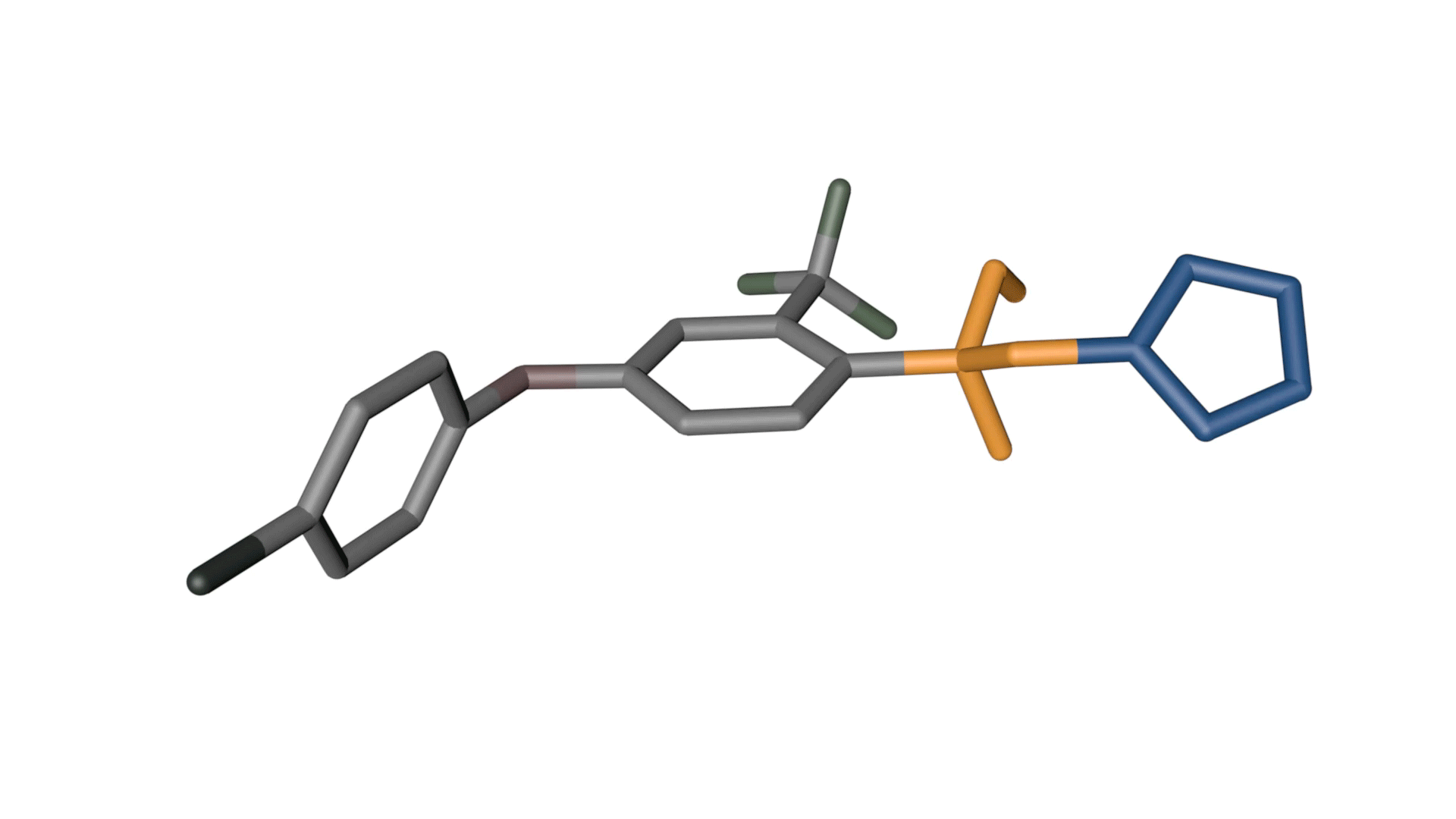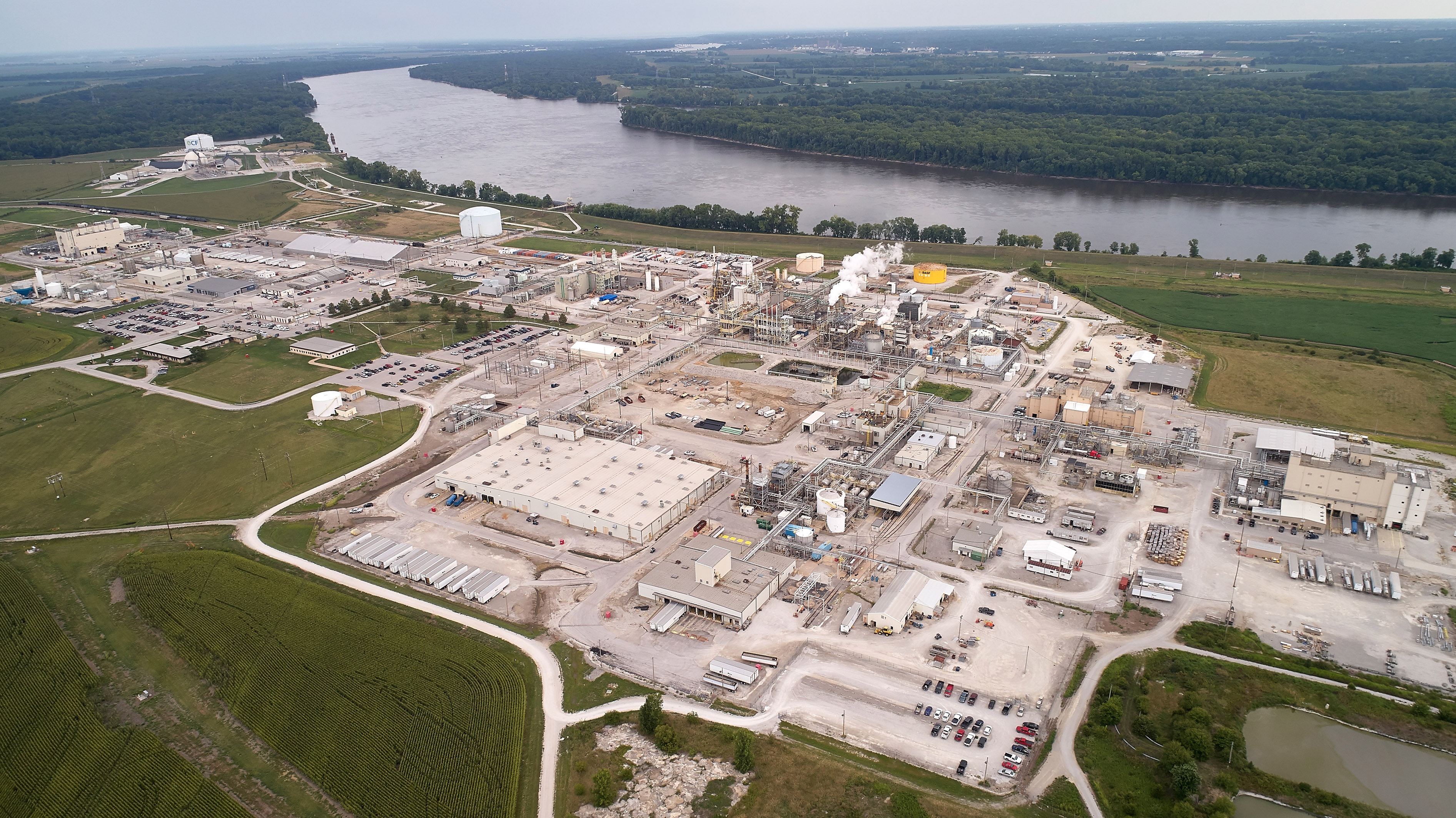Agrochemicals
Revysol – a fungicide innovation 21st March 2019
By Sarah Harding, PhD
BASF has broken the mould for triazole fungicides with the development of Revysol, the first isopropanol-azole, for protecting cro
BASF has broken the mould for triazole fungicides with the development of Revysol, the first isopropanol-azole, for protecting crops from fungal diseases.
When spores of a pathogen infect a plant, a mycelium of thin branching filaments develops, the outer layer of which consists of a flexible membrane. A closer look at the molecular structure of this membrane reveals that it is in constant fluid motion, modulated by large numbers of embedded ergosterol molecules. Ergosterol is produced inside the fungal cells, where the enzyme D-14 demethylase plays a vital role. This is a target for DeMethylation Inhibitor (DMI) fungicides.
A number of DMI fungicides have been available since the 1980s, almost all belonging to the triazole group of compounds. They form the backbone of strategies for crop protection, although the emergence of resistance (mutations at the target site that produces D-14 demethylase) is challenging their effectiveness. This has been compounded by the fact that no new molecule with this mode of action has been introduced to the market for more than 10 years.
BASF set out to address this issue, beginning with the synthesis of thousands of variants of new triazole molecules. The company’s scientists found a molecule in which the triazole head sits on the neck of a thin isopropanol unit. The structure allows the molecule to assume different conformations easily – unbound (straight) and bound (hooked).

As shown in the image to the right, in the Revysol molecule, the triazole head (blue) sits on the neck of a thin isopropanol unit (yellow), allowing molecule to assume different conformation as the ‘head’ bends up and down on the ‘neck’.
When the Revysol molecule approaches the site of D-14 demethylase, it switches to the bound (hooked) form, which results in powerful binding properties, even when target site mutations have developed. It stops the production of ergosterol, cracks appear in the fungal membrane, and the pathogen dies.
Following application, Revysol is taken up rapidly by the leaf, making it rain-fast. Thanks to the formation of reservoirs inside the leaf, from which Revysol is gradually released into the plant’s water transport system, the fungicide permeates the plant to provide extensive and long-lasting protection. According to BASF, this represents “a new level of disease control”. The company believes that the product will be an essential tool for resistance management in many important crops, including cereals, soy and corn, as well as fruits and vegetables. It is also expected to provide a new option for turf management and seed treatment markets.
Due to a new screening system, Revysol was also designed to fulfil high regulatory requirements. BASF has applied for registration of Revysol in 60 countries for more than 40 crops. The regulatory dossier for Revysol was submitted to the EU for regulatory approval in March 2016, and in the US, Canada and Mexico in August 2017. EU approval was announced in March 2019, and first market introductions are now expected this year for the 2019/2020 growing season. Revysol will be available in customized formulations to farmers across the globe.

Hailed as BASF’s next blockbuster, Revysol has the potential of reaching peak sales above €1 billion. Interestingly, the company’s manufacturing plant in Hannibal, Missouri (USA) has been selected as Revysol’s production site (pictured). This choice emphasizes the strategic importance of the new fungicide to North American markets. With an investment in the double-digit million Euro range, BASF has enhanced an existing manufacturing system to produce the new active ingredient.
“We are proud that Hannibal is the first site to produce Revysol,” said Anne Berg, Vice President Manufacturing Americas, BASF’s Agricultural Solutions division, in a statement to the press last year. “This decision was based on the high level of technology and experience on the site and is an investment in its future development.”
BASF has expanded its pipeline of solutions for agriculture significantly and, by 2028, will launch innovations with projected peak sales of more than €6 billion. The pipeline contains a wealth of chemical and biological crop protection products, seeds and traits, as well as digital solutions. This will further strengthen the company’s leading position in innovative and sustainable agriculture. This pipeline demonstrates tangible progress based on continuous investment in research and development, the integration of acquired businesses and strong partnerships. In 2019, BASF will spend around €900 million on R&D for agricultural solutions.
“We provide farmers with a full toolbox of innovative technologies, solutions and know-how, helping them develop their businesses successfully while addressing the demands of the food value chain,” said Markus Heldt, President of BASF’s Agricultural Solutions division. “We are actively steering our current and future portfolio towards more sustainable solutions . This enables us to develop highly-effective, innovative compounds that benefit farmers, society and the planet.”
Contact:
Stephanie Reiß, Global External Communications, BASF Agricultural Solutions, BASF SE, AP/KB-LI 555, Speyerer Strasse 2, 67117 Limburgerhof, Germany
T: +49 621 6029843
Revysol is a registered trademark of BASF



